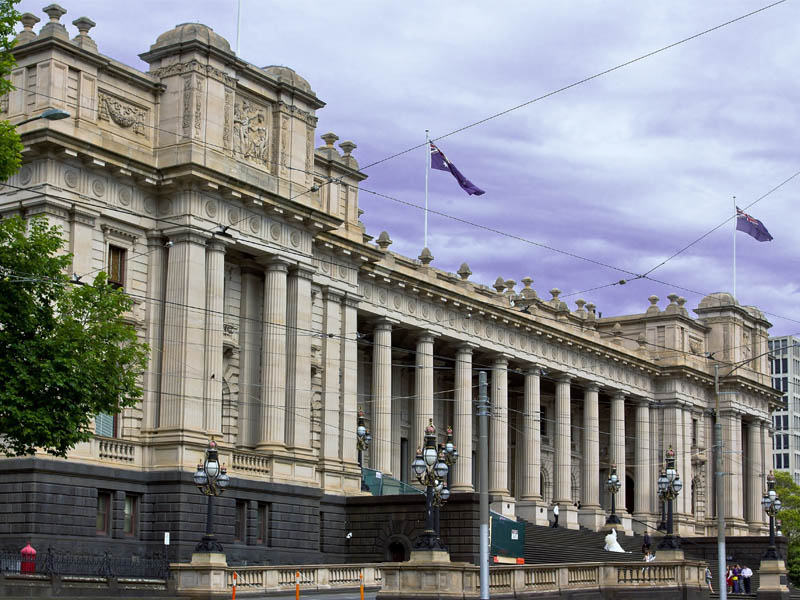The Victorian government has funded a blockchain project to secure medical records online, which could be applied to the controversial My Health Record service.
It’s part of a $3 million round of Medical Research Acceleration Fund grants, with other successful recipients including personalised implant innovations and 3D-printing of stem cells.
RMIT University received $99,611 from the state for its blockchain-based project with digital consultancy DB Results, after the two organisations signed an agreement in July.

The project is looking at whether applying blockchain to online medical records would improve transparency and security, and could be applied to services like the federal government’s My Health Record service, Victorian Health Minister Jill Hennessy said.
“Keeping a centralised system of medical records could be a game-changer for people with complex conditions who see multiple specialists – but we need to get the security right,” Ms Hennessy told InnovationAus.com.
“Blockchain technology could be the key to keeping our information safe online, and we’re proud to be supporting a Victorian project that could be implemented worldwide,” she said.
My Health Record has met with fierce criticism since it switched to an opt-out service, with concerns that the storing of sensitive medical data in one place could act as a “honeypot” for potential hackers.
The state project would look at applying its blockchain technology to My Health Record-like services in order to make it more secure.
“Existing medical and clinical health applications use data protection to ensure privacy and medical record security. It has been proposed that the introduction of blockchain technology within the applications can substantially reduce operational costs whilst improving security of the applications,” the state government said.
“RMIT and DB Results jointly developed blockchain-enabled security and protection mechanisms to facilitate the secure transmission and sharing of health data.”
The cash injection will help to get the project off the ground and assist with further funding efforts.
In a statement following the agreement with RMIT, DB Results chief executive Gavin Bunshaw said the project would look to provide a “framework for supporting the use of information as a valuable asset that can be protected and traded”.
The Medical Research Acceleration Fund provides $3 million per year to a small number of organisations to “fast-track translation into health and economic outcomes”.
Created under the Victorian government’s Health and Medical Research Strategy 2016-2020, it aims to fund organisations in the early-stages of health and medical research to translate work into health and economic outcomes.
“Victoria is home to some of the world’s brightest medical minds who are saving lives with their ground-breaking discoveries. We started this fund to ensure projects that have the potential to save lives across the world don’t get held up because they couldn’t attract early funding,” Ms Hennessy said.
Recipients are required to demonstrate their capacity to collaborate and undertake research that has a clear pathway to translation, and can receive up to $100,000 in funding.
Thirty projects have been funded in total, up from 13 that received cash last year in the first round.
Other successful projects in this year’s funding round include St Vincent’s Hospital, which was given $100,000 to make 3D-printing a reality in surgery. The project will look at how 3D bio-printing of a patient’s stem cells can “generate long-lasting articular cartilage to successfully treat joint injuries”.
The University of Melbourne also received $100,000 for its work on personalised implant innovation, with the team looking to create custom or bespoke implants for patients.
Deakin University pocketed $100,000 for its work on sleep assessment technology to improve the quality of sleep for those with diabetes. The project will develop and test a technology-enabled sleep health intervention using Somfit technology.
The Florey Institute of Neuroscience and Mental Health’s work on web-based tasks that assesses an individual’s’ ability to learn information with an aim to assist with the early identification of Alzheimer’s disease, has received a $100,000 cash injection.
Other successful projects include one exploring the accuracy of artificial intelligence in diagnosing skin cancer, and the use of AI and smartphones for predicting the mental health of young people.
The Victorian government has been interested in blockchain technology since it became a member of the Australian Digital Currency and Commerce Association early last year.
The government has said it is looking to partner with organisations “to explore the potential application and impact of blockchain across the economy, including but not limited to the financial services, health and food sectors”.
The federal government has also dabbled with the blockchain, providing $700,000 in this year’s federal budget to the Digital Transformation Agency to “investigate areas where blockchain technology could offer the most value for government service”.
The DTA has since confirmed that it will be using the funding to investigate applying blockchain to welfare payment delivery, with a prototype to be unveiled next year.
Do you know more? Contact James Riley via Email.

